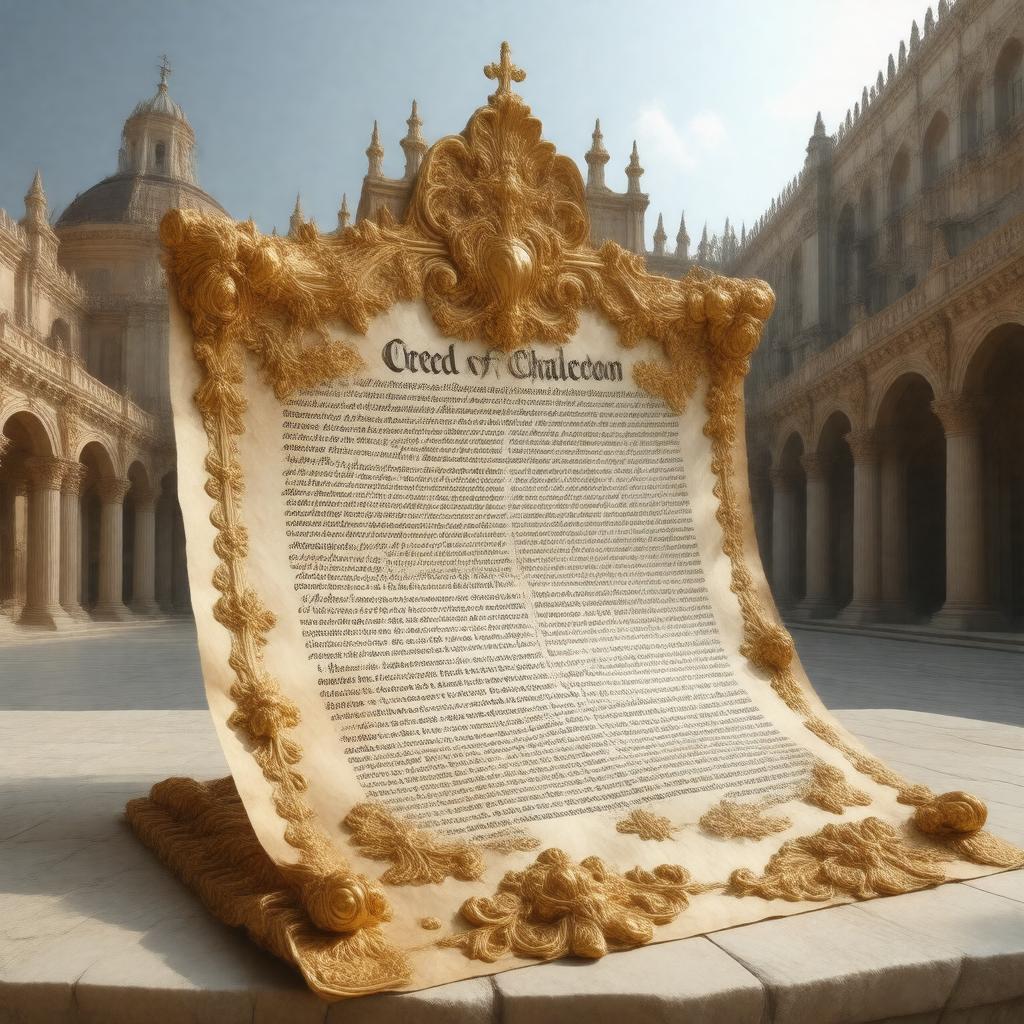Prompt
"Generate an image of a historic, ornate document with gold accents and intricate calligraphy, set against a backdrop of a 5th-century church or a majestic cathedral, representing the Creed of Chalcedon, a foundational document of Christianity that defines the nature of Christ as fully divine and fully human, adopted by the Council of Chalcedon in 451."

